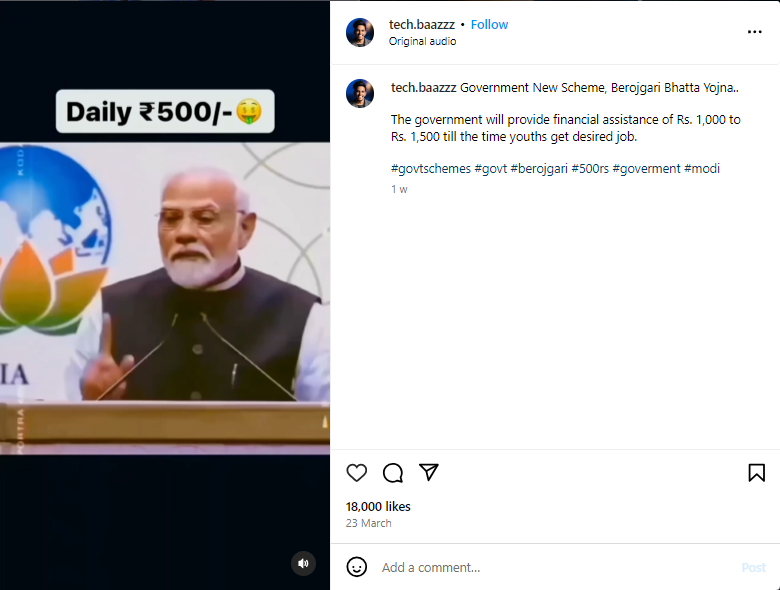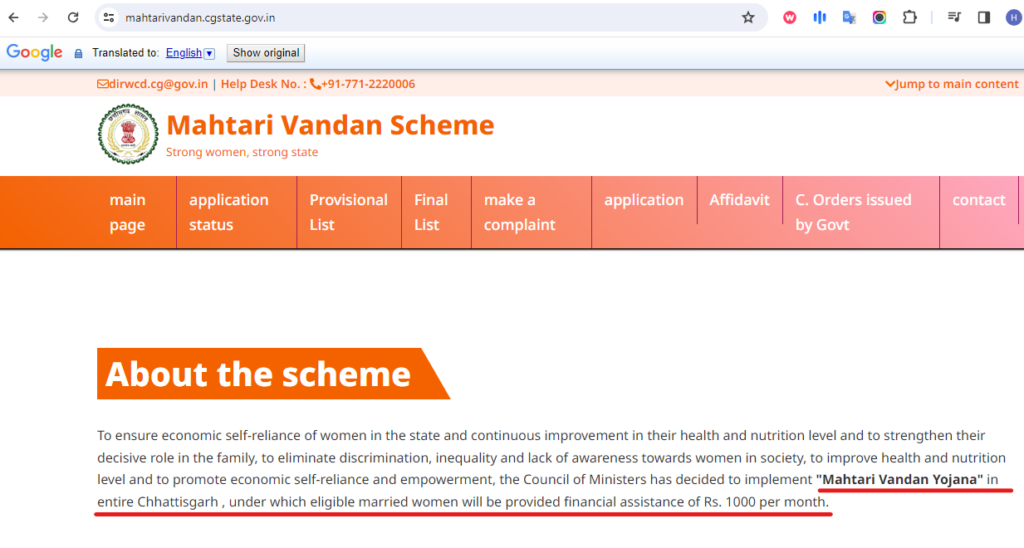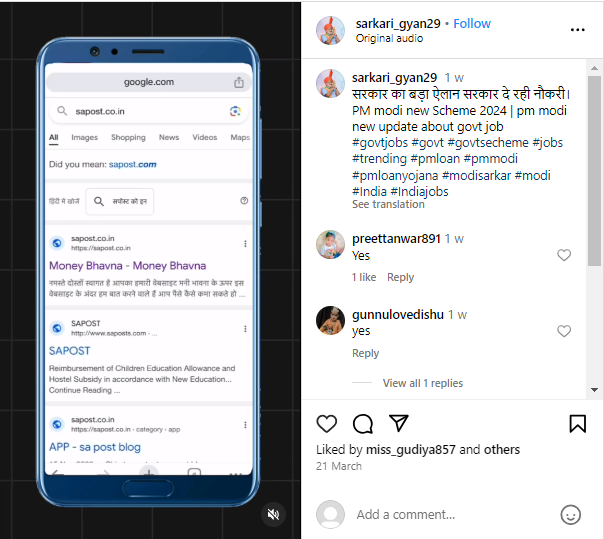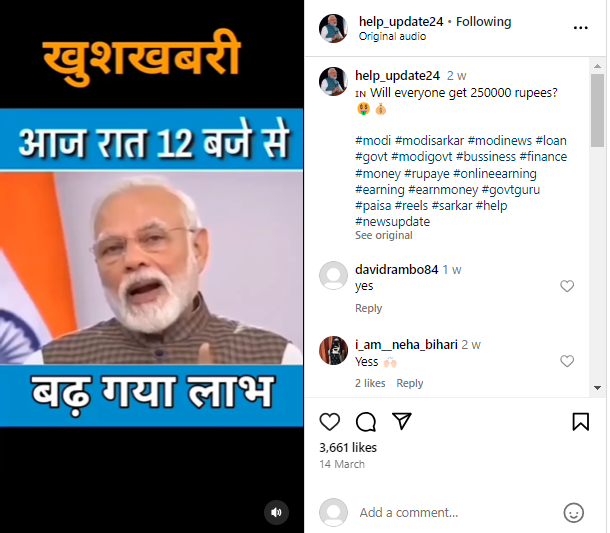Numerous Instagram handles (here, here and here) are widely promoting various Government initiatives, such as providing loans, incentives, and benefits for women, children, the unemployed, pregnant women, etc., under various schemes like PM Awas Yojana, Berojgari Bhatta Yojana, Sukanya Samriddhi Yojana, PM Vishwakarma Yojana, etc. This article aims to verify the authenticity of these claims.
Category 1- Misleading information about government schemes:
A series of widely circulated videos on Instagram claim to provide information about government schemes. However, the details shared in the videos are often incomplete or misleading, such as implying that state-related schemes apply nationwide, providing improper eligibility criteria, and misrepresenting benefits. For example, one video claims that the Indian Government provides ₹500 daily to eligible citizens under the Berojgari Bhatta Yojana.

However, upon investigation, we found that no central government scheme by this name offers unemployment allowances. Previously, on multiple occasions when similar messages went viral, the Press Information Bureau’s Fact Check Unit refuted the claim, stating that the government does not offer any unemployment allowance under the name PM Berojgari Bhatta Yojana (as seen here, here, and here). While the Union government does not have a nationwide unemployment scheme titled “(PM) Berojgari Bhatta Yojana,” states such as Haryana, Chhattisgarh, and West Bengal, among others, have similar schemes for unemployed youths in their respective states. Also, contrary to the claim made in the post, the allowance is not ₹500 per day but ranges between ₹1000 to ₹3000 per month based on the state and the eligibility criteria.
Similarly, another video (archive) claims that the Central Government is providing ₹1000 to every woman under the scheme ‘Mahtari Vandana Yojana.’ However, this scheme is launched by the Chhattisgarh Government, and only eligible married women belonging to Chhattisgarh will receive the financial assistance of ₹1000 per month.

Likewise, several videos are misleading users about alleged government schemes like Aadhaar-based loans, free money for women/children etc. FACTLY has previously debunked several such claims. They can be read here, here, and here.
Category 2- Misleading Redirects to Suspicious Websites:
Another set of videos is being shared claiming that to apply for a particular government scheme/job, one needs to apply through a website mentioned in the video. These websites, which are usually random blogs, though sometimes they provide the official link for the said scheme, mostly redirect users to suspicious websites that could pose a threat to users by stealing their data or injecting malicious software into users’ devices.

FACTLY has previously debunked that no such scheme has been introduced by the Indian Government. Moreover, the above website redirects users to random third-party websites which could lead to potential cybersecurity breaches.
Another video (archive) claims that the Indian Government is giving ₹4 Lakh for every girl child who has a ration card under the Sukanya Samriddhi Yojana scheme and that to apply for this, the user needs to go to the website of neemuchmandi.in. However, while there exists a scheme named Sukanya Samriddhi Yojana launched by the Government of India in 2015, it is a government-backed savings scheme targeted at the parents of the girl child. The scheme encourages parents to build a fund for the future education of their female child. Moreover, the website mentioned in the viral video doesn’t provide any link to the official website but rather redirects to other pages on the same website thus misleading the users.

Category 3- Unauthorized Collection of Personal Data from Users:
Another set of videos is being shared claiming that they help users in registration, and application for a particular scheme or job. While the video does not explicitly mention what scheme it is referring to, users were asked to comment ‘Yes,’ ‘State Name,’ ‘Age of the family member,’ ‘City Name,’ etc. to get help in applying for the scheme/Job. This could lead to leakage of personal details online, which can have several harmful consequences.
For example, one such video (archive) claims that the Modi Government is giving everyone Rs. 2,50,000. This video didn’t mention any details of the scheme but rather asked users to comment ‘Yes’ in the comments to get help in filling out the form. Similarly, there are instances where some users have mentioned their phone numbers and personal details in the comments of such videos.

In our investigation, we discovered that most of these Instagram handles were newly created in early 2024 or late 2023. They have swiftly gained traction as a prevailing trend aimed at driving traffic to their blogs and YouTube channels by misleading social media users. Repeatedly, government officials and cybersecurity experts have cautioned users against divulging personal information such as phone numbers, names, or ID card details online due to the grave risk of falling victim to cyberfraud.
To sum it up, many misleading Instagram videos circulate, disseminating inaccurate information about various government programs.



